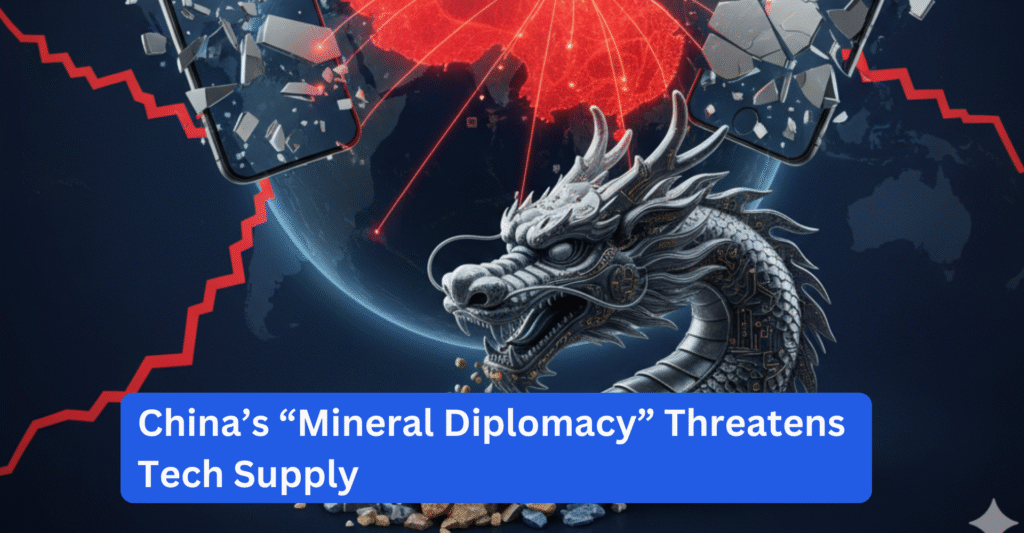
Quick highlights
- China has expanded export controls on rare earths, and related processing tech licences are now required.
- New rules target magnets, refining equipment and some additional rare-earth elements used in high-tech and defence.
- Measures include extraterritorial clauses: foreign firms using Chinese-processed material may need Chinese permission to export.
- Analysts warn the move could squeeze supply for EV motors, phone components, semiconductors and defence supply chains.
- Governments and companies are accelerating diversification and stockpiling plans, but alternatives will take time and money.
What happened?
China’s Ministry of Commerce recently widened export controls on rare-earth elements and equipment used to mine, refine and make permanent magnets — the tiny metals that power everything from smartphone speakers and phone cameras to electric-vehicle (EV) motors and guidance systems. Export licences and tougher approvals are now required for more elements and technologies.
When and where did this take effect?
The announcements were made in early October 2025 and include immediate domestic controls plus phased measures (some extraterritorial rules kick in later this year) that extend oversight to foreign firms using Chinese-processed materials.
Why is Beijing doing this?
Officials frame the move as protecting national security and non-proliferation. Strategically, it also gives China leverage in a world that depends on its dominant refining and processing capacity for these minerals — a tool that can be used for economic or geopolitical pressure. Analysts say it’s an intentional play to secure long-term industrial advantage.
How will it affect us? (short, practical answer)
- Smartphones: Components like rare-earth magnets and certain chips could face price rises or delays if suppliers can’t freely export processed materials.
- Electric vehicles: Permanent magnets and battery-related minerals are vital for motors and powertrains; tighter supply could raise costs and slow EV production growth.
- Tech & defence supply chains: Semiconductors and aerospace suppliers that rely on these elements may face stricter checks and higher compliance costs.
- Consumers: Expect potential price increases and longer product lead times if companies cannot quickly source alternatives.
Stay connected with Unwires.com for more Global stories, guides, and inspiration.
After all, every great journey begins with a spark — and Unwires is that spark. ⚡


